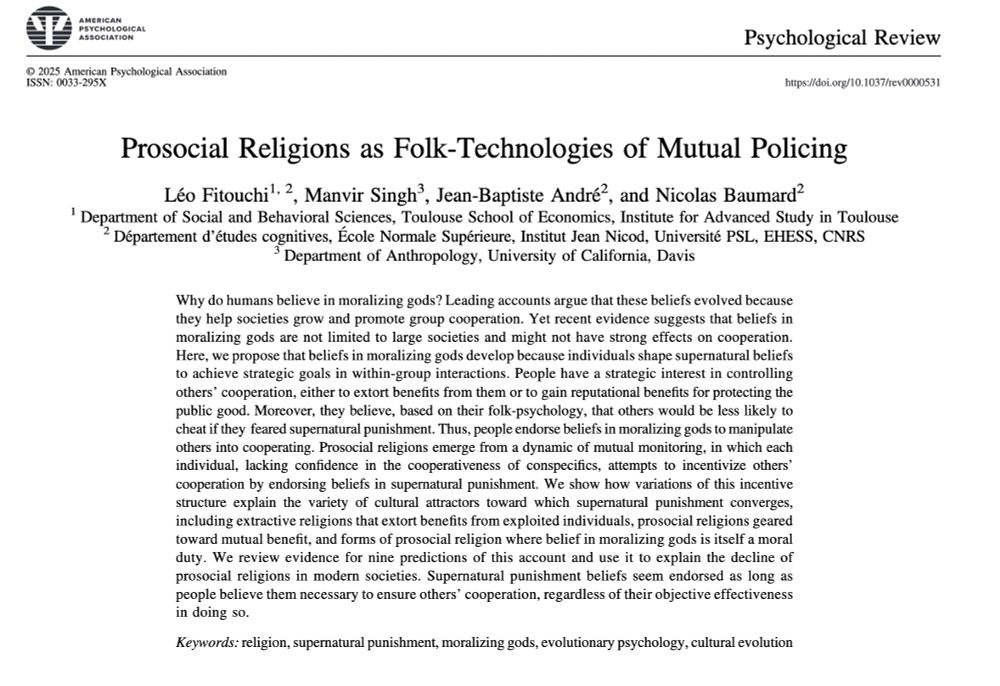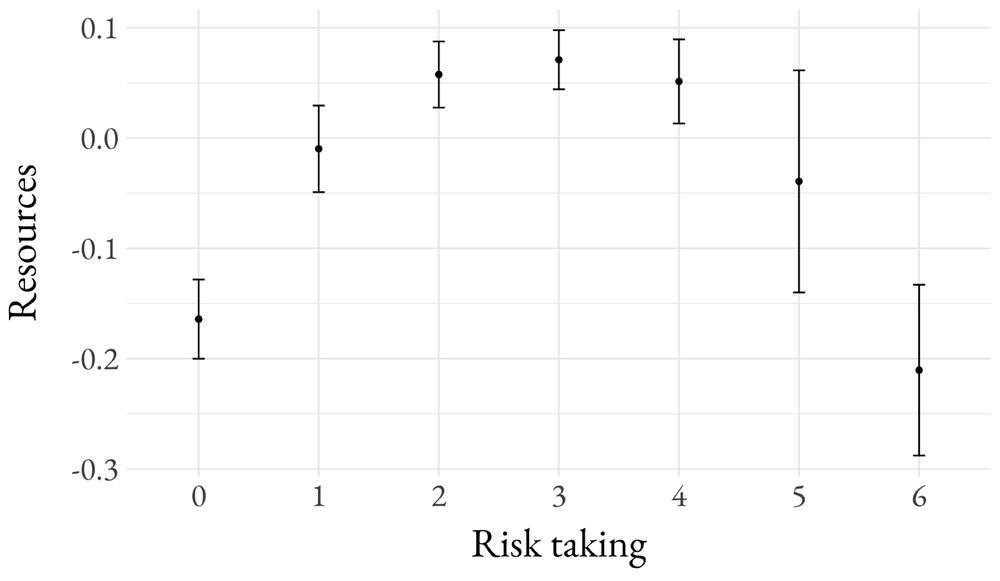Matthew I. Billet
@matthewibillet.bsky.social
2.4K followers
770 following
22 posts
Postdoc at University of California Irvine. PhD in Social/Personality Psychology from University of British Columbia.
Research on religion, environment, morality, cultural evolution.
Posts
Media
Videos
Starter Packs
Reposted by Matthew I. Billet
Reposted by Matthew I. Billet
Reposted by Matthew I. Billet
Reposted by Matthew I. Billet
Reposted by Matthew I. Billet
Reposted by Matthew I. Billet














